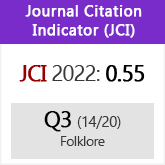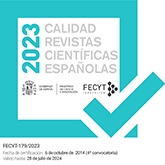Introduction. Ethnographies and Emergencies in the Mediterranean: Black Holes of Our Modernity
DOI:
https://doi.org/10.3989/rdtp.2015.02.001.01Keywords:
Migration, Asylum, Refuge, Humanitarianism, Border, Mediterranean, Human RightsAbstract
This section is an anthropological response to the atrocity of the media coverage and death of thousands of human beings in the sea linking Southern Europe with Northern Africa, the Mediterranean. It responds to the moral economy of asylum and the rhetoric of humanitarianism based on «crisis» and «emergencies» rather than social justice and human rights. We consider the Mediterranean from the ethnographic perspective, analysing and experiencing borders in a specific way, away from media cameras and political populism, and closely in touch with the stories and interpretations of the people who cross them. We address Mediterranean borders as they really are at the current moment: interconnected, delocalized, much more extensive than defined by law as «the European frontier». They constitute a «pressure cooker», exacerbated by the effects of police controls in transit countries like Morocco, Libya and Turkey. This border Regime extends to the European territory contains through the 400 immigration detention centres and the monitors of foreigners settling in Europe. The overwhelming borderland regime calling into question the validity of the ethical and political principles that led to the construction of the European Union.
Downloads
References
Andersson, Ruben. 2014. Illegality Inc. Clandestine Migration and the Business of Bordering Europe. Berkeley: University of California Press.
Braudel, Fernand. 1997. El Mediterráneo y el mundo mediterráneo en la época de Felipe II. Madrid: Fondo de Cultura Económica.
De Genova, Nicholas. 2013. «Spectacles of migrant ‘illegality’: the scene of exclusion, the obscene of inclusion». Ethnic and Racial Studies 36(7): 1180-1198.
Klein, Naomi. 2005. No Logo. El poder de las marcas. Barcelona: Paidós.
Suárez-Navaz, Liliana. 2004. Rebordering the Mediterranean. Boundaries and Citizenship in Southern Europe. Oxford/Nueva York: Berghahn Books.
Suárez-Navaz, Liliana, Raquel Maciá y Angela Moreno. 2008. Las luchas de los sin papeles y la extensión de la Ciudadanía. Madrid: Traficantes de Sueños.
Fassin, Didier y Patrice Bourdelais. 2005. Les constructions de l’intorelable. Ëtudes d’anthropologie et d’histoire sur les frontières de l’espace moral. Paris: La Découverte.
Downloads
Published
How to Cite
Issue
Section
License
Copyright (c) 2015 Consejo Superior de Investigaciones Científicas (CSIC)

This work is licensed under a Creative Commons Attribution 4.0 International License.
© CSIC. Manuscripts published in both the printed and online versions of this Journal are the property of Consejo Superior de Investigaciones Científicas, and quoting this source is a requirement for any partial or full reproduction.All contents of this electronic edition, except where otherwise noted, are distributed under a “Creative Commons Attribution 4.0 International” (CC BY 4.0) License. You may read here the basic information and the legal text of the license. The indication of the CC BY 4.0 License must be expressly stated in this way when necessary.
Self-archiving in repositories, personal webpages or similar, of any version other than the published by the Editor, is not allowed.
















